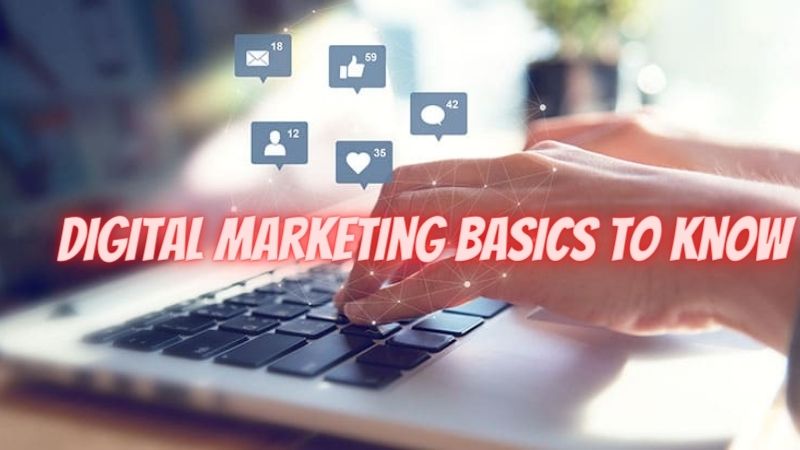There’s no doubt that good SEO headlines are essential for any business looking to rank high in search engine results pages (SERPs). But what makes a good SEO headline, and how can you write one that will improve your website ranking? In this article, we’ll look at some of the basics of writing great SEO headlines.
Why Do SEO Headlines Matter?
SEO, or search engine optimization, is the process of optimizing a website to rank higher on search engine results pages (SERPs). A high ranking in SERPs can lead to increased traffic and higher brand awareness for a business.
One of the most important elements of SEO is creating headlines that are both relevant to the topic at hand and likely to be clicked on by users. A good headline helps your website rank higher in SERPs and also increases the likelihood that users will click through to your website.
Are Title Tags And Header Tags Different?
Yes, title tags and header tags are different.
Title tags are the HTML elements that specify the title of a web page. They are used to give search engines an idea of what the content on the page is about.
Header tags, on the other hand, are used to structure the content on a web page into sections. They are not used by search engines to determine the topic of a page, but they can be helpful for users who are scanning a page for relevant information.
Understanding the difference between title tags and header tags can help you create headlines that are both relevant and likely to be clicked on.
How to Create Compelling Headlines
Now that we’ve covered some of the basics, let’s take a look at how you can create compelling headlines for your website.
Keep It Simple
The most important thing to remember when writing headlines is to keep them simple. Complicated, jargon-filled headlines are likely to be skipped over by users and ignored by search engines. Instead, focus on creating headlines that are clear and to the point. A good headline should give readers a general idea of what the article is about without being too specific.
For example, a poor headline might be “The best things if you want your camera to perform better for you.” This headline is too long and doesn’t give readers a clear idea of what the article is about. A better headline would be “The Best Mirrorless Cameras To Level Up Your Photos.” This headline is simpler and gives readers a better understanding of what the article will be about. Remember, when it comes to headlines, less is often more.
Consider the “How-To” Tag
When it comes to SEO, the “how-to” tag is your friend. This tag tells search engines that the content on your page is a step-by-step guide to doing something. The “how-to” tag is especially useful for headlines because it immediately tells readers what they can expect from the article.
For example, a headline such as “How to Optimize Your Website for SEO” is more likely to rank higher in SERPs than a headline such as “SEO Tips for Optimizing Your Website.” The “how-to” tag tells search engines and readers that the article will be a step-by-step guide, which is exactly what they are looking for, whereas the other title is too general.
Include Keywords
As reported by Digital Authority Partners, including keywords in your headlines is a good way to let search engines know what your article is about. But be careful not to stuff your headlines full of keywords; this will only result in lower SERP rankings and higher bounce rates. Instead, focus on using one or two relevant keywords in your headlines.
For example, if you are writing an article about how to optimize your website for SEO, you might include the keywords “SEO” and “website optimization” in your headline. This will tell search engines what your article is about and help your article rank higher in SERPs.
Read here : How do you SEO optimize your WordPress site?
Use Statistics to Grab Attention
Statistics are a great way to grab attention and make your headlines more compelling. People are naturally curious, so including a statistic in your headline is a good way to get them to click through to your article. If you can back up your headline with hard data, even better.
Create an Action Based Headline
Action-based headlines are another great way to get people to click through to your article. These types of headlines tell readers what they need to do in order to achieve a certain goal. Make sure your action-based headlines are clear and to the point. Remember, you want readers to know exactly what they need to do in order to get the desired result. If your headline is too vague, readers will be confused and less likely to click through to your article.
Use Emotion
Using emotion can help people connect with your headlines. After all, we are emotional creatures, and we are more likely to respond to headlines that evoke an emotional response. Using emotion in your headlines can increase the chances of people clicking through to the article. Some emotions that tend to work well in headlines are fear, anger, and happiness. Of course, you should always use emotion in a way that is appropriate for your brand and your audience.
Analyze Your Headlines
If you’re ready to get started, pull up your website and take a look at your headlines. Are they clear and to the point? Do they include relevant keywords? Are they action-based or full of statistics? If not, it may be time to revise your headlines.
Once you’ve analyzed your headlines, it’s time to start writing new ones. Keep the tips in this article in mind as you write, and you’ll be sure to create headlines that will grab attention and help your site improve its rank in SERPs.
Conclusion
When it comes to SEO, headlines are important. A good headline can help your article rank higher in SERPs and get clicked on by users. A bad headline, on the other hand, can do just the opposite. By following the tips we’ve outlined in this article, it’s never been easier to ensure your content is clicked on by potential customers and climbs the search engine ranks.




